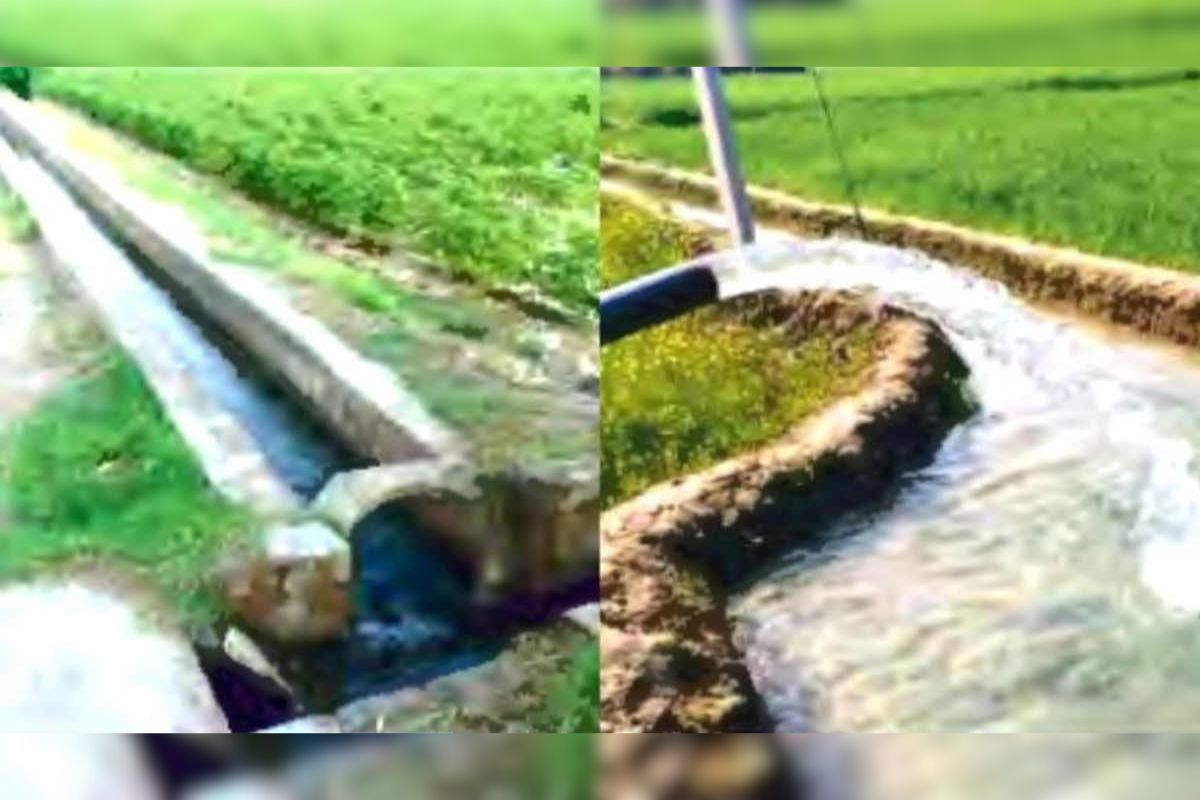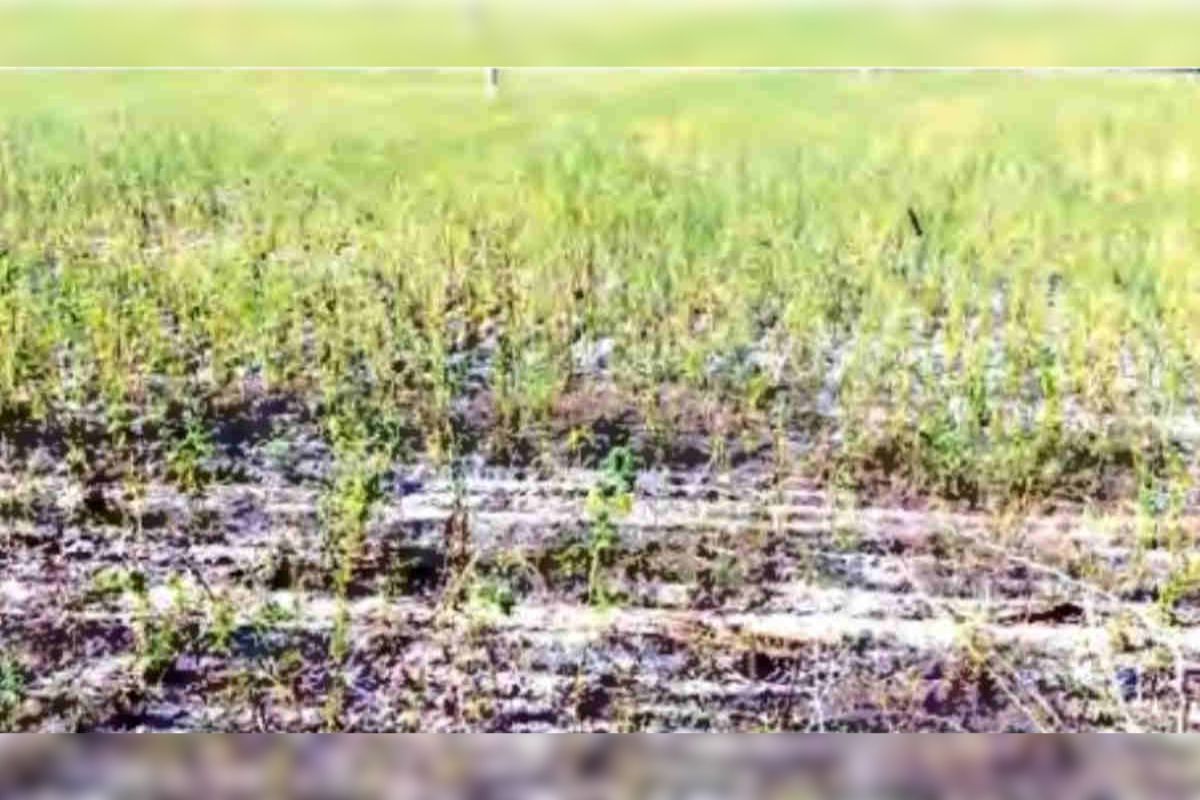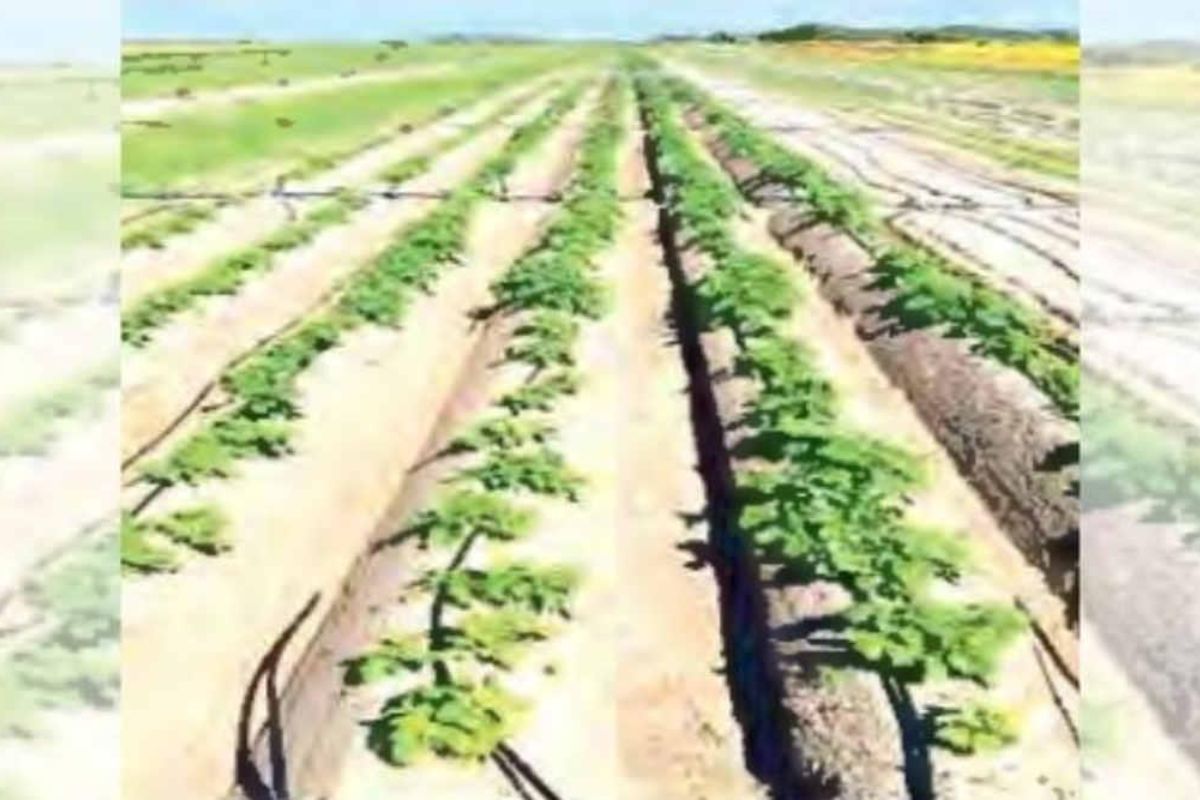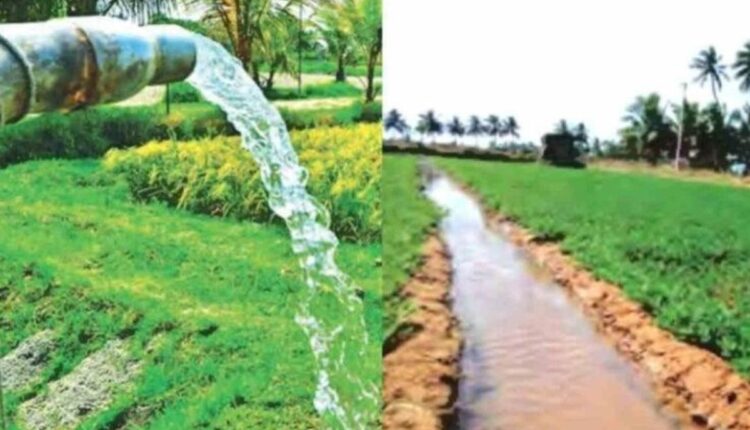Water Testing: Quality of irrigation is directly related to earning, clean water gives more yield
Like soil test, irrigation water test is also very important, saline and alkaline water also spoils the field.
Farming is greatly affected by many factors, such as water, soil, seeds, fertilizers, climate, natural calamities, market demand, and supply. In a large irrigated area of the country, crops are washed with saline or alkaline water of poor quality. This is the reason that despite the total irrigated area of India being more than all the countries of the world, the productivity of our farms is relatively low. This is where it becomes all the more important for water testing. Due to inadequate water, our agriculture does not become very profitable. That is why farmers need to pay much attention to water quality.
There is water on 75 percent of the earth’s surface. Of this, 97 percent is salty seawater. The rest of the water is fit for agriculture and human use. We use only 0.5 percent of the earth’s surface water. 72 percent of the country’s irrigation is dependent on polluted groundwater. The quality of groundwater in many of our states is of saline or alkaline status. That’s why it is very important for us to manage the contaminated irrigation water during farming itself. Otherwise, we cannot recover from the declining fertility of our fields.

According to agricultural experts, the soil gets spoiled due to poor irrigation water because when the field water dries up due to evaporation, the saline and alkaline substances present in it either remain on the surface of the soil or percolate slightly below. reach the surface from where the roots of the crop have to take nutrition. Due to both these reasons, the balance of nutrients in the soil gets disturbed, and the germination process of improved varieties of seeds also falters. Its effect is seen in the form of slow growth, early wilting, and drying of plants.
How to test the water quality?
Like soil, by getting water also chemically tested, we know the proportion of salts present in it. The following parameters have been considered essential for determining water quality for irrigation.
The concentration of salts: It is measured in terms of the electrical conductivity of water. It is expressed as desi ceman per meter or milliliter per centimeter. Generally, cations like sodium, potassium, calcium, magnesium and anions like carbonate, bicarbonate, chloride, sulphate, nitrate and fluoride are found in water. Apart from this, there are also ions like silica and boron.
Absorbed sodium carbonate: This is referred to as reserve sodium carbonate (RSC). It shows that how much the amount of carbonate and bicarbonate ions in water is more than that of chloride and sulfate ions?
Sodium absorption ratio (SAR): This gives information about the relative abundance of sodium ions relative to calcium and magnesium cations in water.
Effects of Salty and Alkaline Water
The use of saline and alkaline water increases the exchangeable sodium percentage of the soil. This disintegrates the soil particles, takes the form of lumps when wet and hardens when dry. Due to this, a fine crust is formed on the upper surface of the soil and the plants do not get proper water. Saline and alkaline water increases the pH value of the soil and nutrients like nitrogen, zinc, iron are not available to the plants. Due to this, the ratio of calcium and magnesium in the soil decreases and the amount of elements like sodium, boron, molybdenum, chlorine, lithium, selenium starts increasing. Due to the effect of all these, the poisoning of the soil i.e. intoxication increases.

How to deal with salty and alkaline water?
Soil Type: The proportion of salts deposited in the soil through irrigation also depends on the type of soil. In a normal drainage system, half of the saline water accumulates on coarse soils like loam and sand. Similarly, in sandy loam and loam almost equal parts and in fine soil like Matiar and Matiar loam, the saline fraction present in irrigation water accumulates in double quantity. That’s why if the water to salt ratio is very high, use it in coarse type of soil.
- Where the annual rainfall is not less than 400 mm, only salt tolerant and medium salt tolerant crops should be selected.
- Where there is more than 400 mm of rainfall, harmful salts are easily restored with the water. Therefore, irrigation can be done in such areas in a traditional way.
- In the year when the rainfall is less than normal, heavy irrigation with saline water should be done before sowing. Due to this, the salinity elements will move below the root zone in the coming rabi season.
- Increasing the total number of irrigations with saline water is also a very useful solution. For this minimum water should be used in each irrigation or each irrigation should be kept light.
- Mixing or alternating use of canal and alkaline water is also useful. For this, the field should be plowed well before sowing and canal water should be used, while alkaline water can be used for irrigation of standing crop.
- In soil affected by alkaline water, giving 15-20 percent more nitrogen fertilizers than normal soil also proves to be very beneficial.
- The amount of seed should also be given 25 percent more in saline and alkaline soil.
Soil treatment with gypsum
To improve soils damaged by alkaline water irrigation, a calcareous chemical amendment such as gypsum should be used. The sodium carbonate absorbed from the gypsum becomes inactive. But to know its exact quantity, it is necessary to get the soil and water tested. Gypsum should be filtered. It should be mixed in the field to a depth of 10 cm in the last week of May or first week of June.
Gypsum is less soluble in water. That’s why about 5 cm of water should remain in the field for 15 days. Due to this, calcium will dissolve in the soil and sodium bicarbonate will come out of the soil. Gypsum sack can also be used for irrigation by keeping it in a water tank. After adding gypsum, if green manure crop is sown and wheat is sown in reverse, then very good yield is obtained.
Soil treatment with manure and fertilizers
Use of cow dung and compost is also very important in fields affected by saline and alkaline water. This facilitates the process of leaching of salts, improves the physical properties of the soil and increases the nutrients. To get good yield by irrigation with saline water, about 20 to 30 percent more quantity of Nitrogen, Phosphorus, Potash and Zinc fertilizers should also be used after testing the soil.

Selection of salt tolerant crops
In spite of irrigation with saline water, it is also very important to choose such crops which are more saline tolerant to get good yield from the field. For example, crops like cotton are very sensitive to salt water. Crops such as Bermuda grass, mercury grass and sugar beet are even less sensitive to salinity, which means they can be grown even in less fertile fields.
| Nature of salinity tolerance present in crops | ||||
| Tolerance Level | Food grains, Pulses and Oilseeds | Vegetables | Forage crops | Fruits |
| More tolerant | barley, sugar beet, cotton, dhencha | Spinach, turnip, sweet potato | Salt Bush, Bathua, Dub grass, Bermuda grass, Barley | dates, coconut |
| Moderately tolerant | Wheat, Oats, Paddy, Jowar, Taramira, Mustard, Maize, Bajra, Sugarcane, Sunflower, Castor | Tomato, Cabbage, Potato, Carrot, Onion, Brinjal, Pumpkin, Fenugreek, Peas | Rizka, Berseem Sudan grass, Oats, Napier grass, Maize, Sorghum | Pomegranate, Fig, Olive, Grape |
| Sensitive | Gram, Pea, Guar, Sesame, Cowpea, Mint, Groundnut, Moong | beans, okra, zucchini, bottle gourd, radish | Pear, Apple, Orange, Plum, Almond, Lemon Peach, Papaya, Mango, Guava | |
Also Read: Biochar: Domestic and Scientific method of making soil fertile, know why its Unique
Contact us – If farmers want to share any valuable information or experiences related to farming, they can connect with us via phone or WhatsApp at 9599273766 or you can write to us at “kisanofindia.mail@gmail.com”. Through Kisan of India, we will convey your message to the people, because we believe that if the farmers are advanced then the country is happy.
You can connect with Kisan of India on Facebook, Twitter, and WhatsApp and Subscribe to our YouTube channel.

